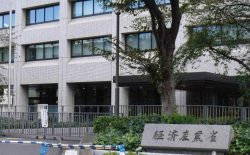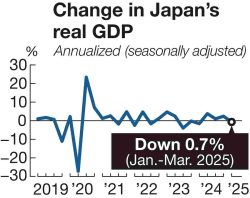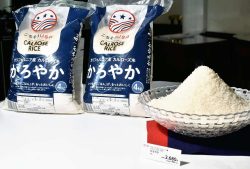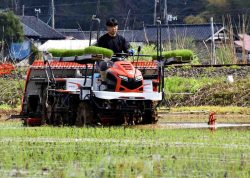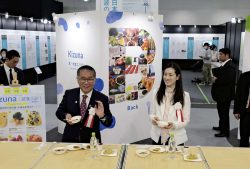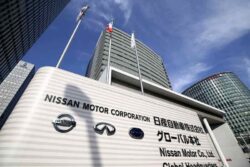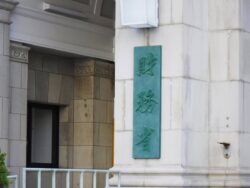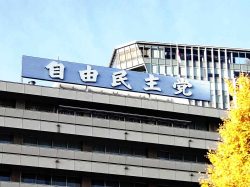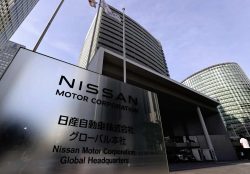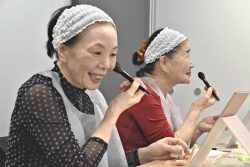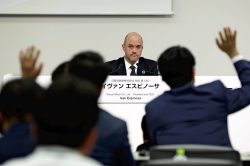Japan Must Boost Its ‘Indispensability,’ Urges JETRO Chair; Convince United States That Cooperation Will Be Beneficial
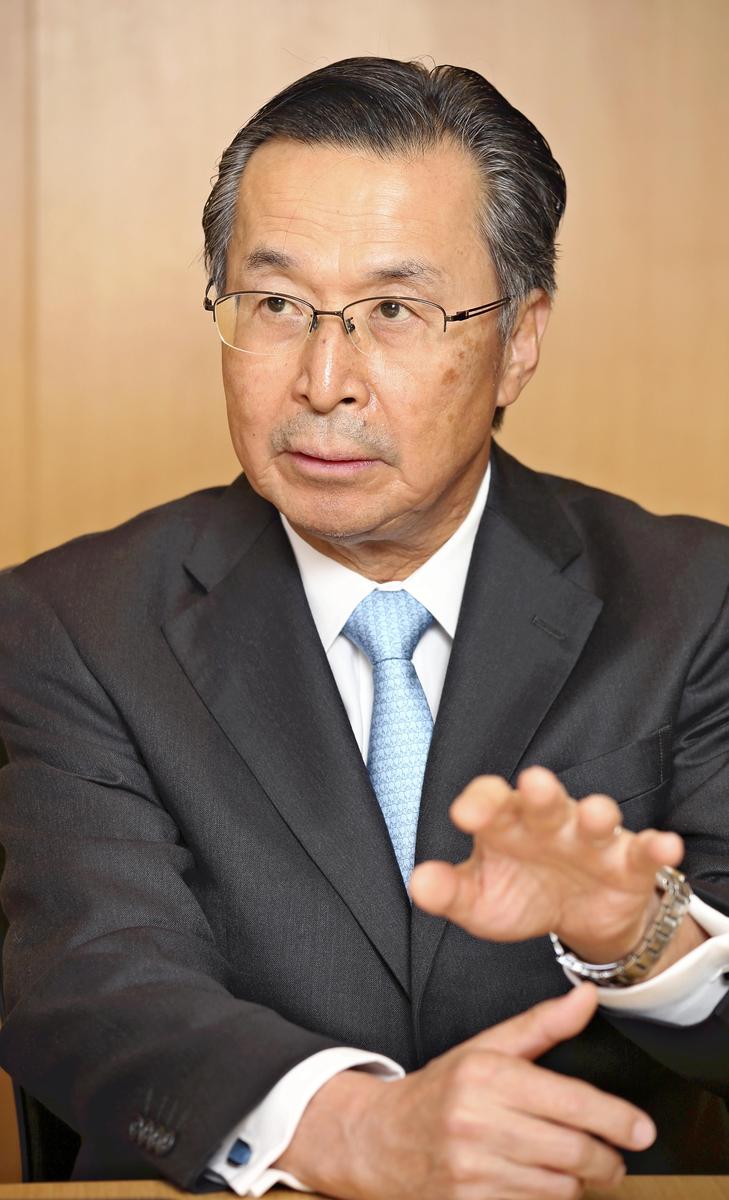
Japan External Trade Organization Chairman Norihiko Ishiguro speaks to The Yomiuri Shimbun.
6:00 JST, May 1, 2025
Japan must become indispensable in many industries to cope with the current tariff policy launched by the United States, said Japan External Trade Organization (JETRO) Chairman Norihiko Ishiguro.
The following is excerpted from an interview with Ishiguro conducted by Yomiuri Shimbun Staff Writer Kentaro Matsumoto.
***
The number of consultations with JETRO has skyrocketed since U.S. President Donald Trump imposed a tariff on automobiles and “reciprocal tariffs” in early April. A single industrial product contains many components produced overseas, and firms have been inquiring about such things as which country products will be classified as coming from and what the tax rate will be.
In Japan, the tariff policy would directly affect the automotive industry, which accounts for about 30% of Japan’s exports to the United States. As long as there is inventory in the United States, the impact will be minimal, but once it runs out, the impact will be inevitable. Competitive manufacturers may be able to pass on tariff costs to prices, but this is not a simple solution if raising prices leads to lower sales volume.
Automobile and parts makers are grappling with questions such as who should bear the tariff costs and in what form, and how much can be cut through streamlining. Even parts manufacturers that do not directly export to the United States will face secondary impacts if automobile exports decline and domestic production slows.
According to a JETRO survey, Japanese companies were enthusiastic about the investments in the United States sought by Trump. However, the frequent changes in U.S. policy have increased uncertainty and unpredictability. This uncertainty is delaying their investment decisions.
Japan will have to consider three points to deal with the United States from now on.
First, the government and private sector must send a message that cooperation with Japan will enrich the United States, and Japan’s investment will boost the U.S. economy. For example, Boeing Co.’s aircraft use a significant number of Japanese parts, and its business can be said to stand on a division of labor between Japan and the United States. Also, United States Steel Corp. has a chance of recovery if the two countries cooperate.
Second, Japan must become indispensable, or in other words, increase its “indispensability.” Japanese chipmaking equipment and semiconductor materials are known as “global niche top” with high market shares in specific fields. Without Japanese equipment and materials, semiconductors cannot be manufactured anywhere in the world, making it easy to pass on the tariff costs. The public and private sectors must work together to make innovations and increase the number of such “indispensable” industries.
Third, international cooperation must be deepened. For example, Japan should collaborate with the Association of Southeast Asian Nations, which has a robust supply chain with Japanese companies, and speak as one voice to the United States. Additionally, the membership of the Comprehensive and Progressive Agreement for Trans-Pacific Partnership should be increased sufficiently enough to advocate its principles to the United States. Through frameworks like this, Japan should enter untapped markets such as the Middle East and Africa.
Norihiko Ishiguro
Ishiguro graduated from the University of Tokyo’s Faculty of Law. He then joined the International Trade and Industry Ministry — now the Economy, Trade and Industry Ministry. As vice minister for international affairs, he was in charge of negotiations over the Trans-Pacific Partnership and the economic partnership agreement with the European Union. He took up his current post as JETRO chairman in April 2023. He is 67.
"Business" POPULAR ARTICLE
-

Core Inflation in Japan’s Capital Sharply Accelerates in April
-
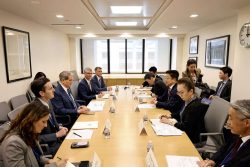
U.S. Holds Fire Over Yen Exchange Rate Targets; Bessent Said to Understand Negative Impact on Markets
-

Japanese Govt Mulls Raising Number of Cars to be Imported Under Simplified Screen System in U.S. Tariff Negotiations
-
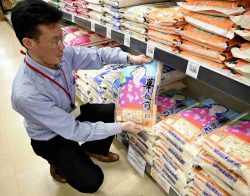
Rice Prices Rise for 15th Straight Week, with Releases of Stockpiled Rice Slow to Circulate
-
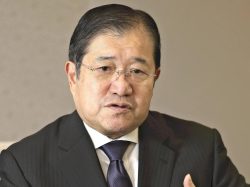
Japan Must Take Lead in Maintaining Free Trade System, Says Chairman of Japan Trade Group
JN ACCESS RANKING
-

Core Inflation in Japan’s Capital Sharply Accelerates in April
-

U.S. Holds Fire Over Yen Exchange Rate Targets; Bessent Said to Understand Negative Impact on Markets
-

Japanese Govt Mulls Raising Number of Cars to be Imported Under Simplified Screen System in U.S. Tariff Negotiations
-

Rice Prices Rise for 15th Straight Week, with Releases of Stockpiled Rice Slow to Circulate
-

Japan Must Take Lead in Maintaining Free Trade System, Says Chairman of Japan Trade Group

